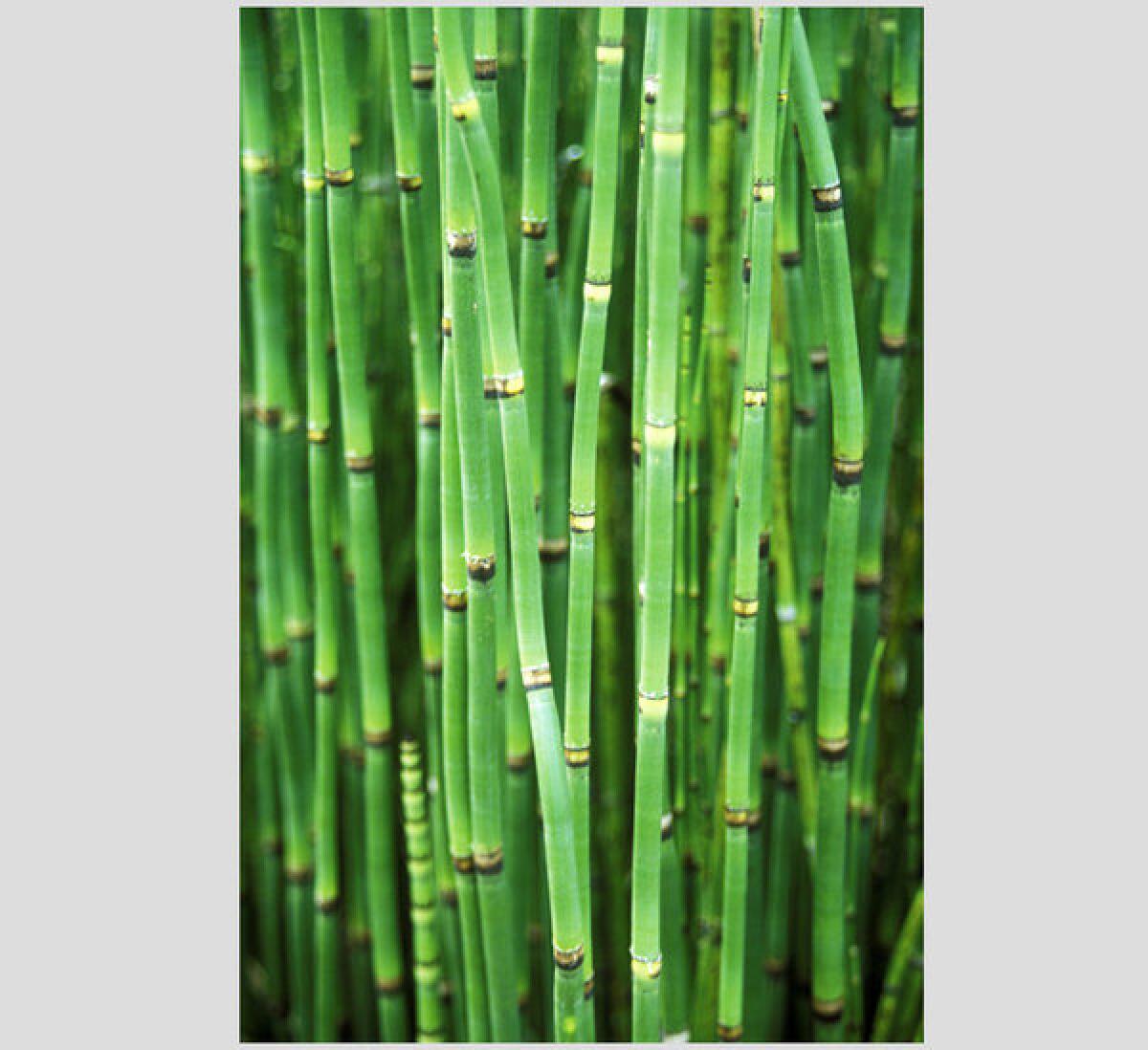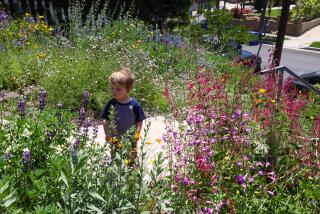Pick the appropriate plant to match soil and design

- Share via
Question: I live in San Diego and am trying to grow horsetail reed as a hedge in front of my fence. I water three times a week and have added fertilizer. The horsetail reed grows tall, but then it dies. A few plants are surviving, but they are not flourishing.
My yard is a xeriscape design with decomposed granite as the ground cover. My yard designer installed irrigation, and the plants get direct sun until early afternoon. I love this look and need to know what I’m doing wrong.
Melinda Mariano
San Diego
Answer: Melinda, your horsetail reed (Equisetum hyemale) is dying from root rot because of the heavy soil conditions. Many growers suggest planting horsetail reed in a rich, peat moss-based potting soil mix combined with a smaller amount of dirt. Your decomposed granite lacks the soft richness of a marsh or pond. The heavy watering causes the roots to rot instead of flourish.
It seems a contradiction to have horsetail reed growing in a low-water xeriscape design. Alternatives are difficult: Plants with the same tubular shapes, such as Chondropetalum tectorum or Elegia capensis, require ample water and good drainage. A variety of Melinis nerviglumis called Ruby Grass or a variety of Muhlenbergia capillaris called Pink Muhly would be more appropriate if you’re trying to maintain the xeriscape approach. — AU
Question: What causes eggplant to be slightly gray-green rather than glossy purple? Is the difference merely cosmetic, or is something wrong with the plant?
Diane Groh
Fountain Valley Via email
Answer: It sounds like you might have a mite infestation. It’s a common occurrence in midsummer, when these pests hatch and begin feeding on your favorite vegetables. Symptoms include the discoloration or bronzing of the eggplant’s skin. Leaves are spotted and scorched to the point where a plant can die.
Irregular watering and poor air circulation may add to the problem. We have found that organic and “natural” sprays are most effective in preventing and controlling mites. — AU
Our experts
The answers this week come from Alan Uchida, a third-generation nurseryman at Bellefontaine Nursery in Pasadena, www.bellefontainenursery.com; and Yvonne Savio, manager of the UC Cooperative Extension’s Common Ground Garden Program for Los Angeles County, who oversees the training of master gardeners.
We welcome questions from readers. Send them to home@latimes.com. Please put “SoCal Garden Clinic” in the subject line and include a photo if you’d like. Because of the volume of mail we receive, we cannot respond to all questions.






